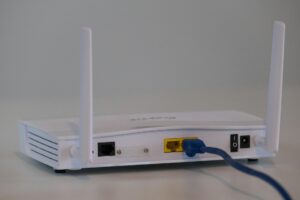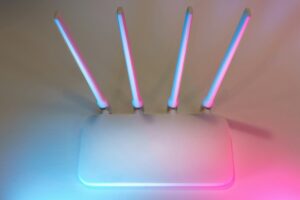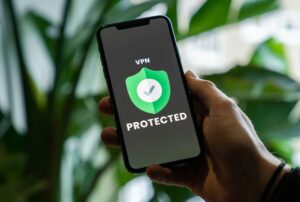Picture this: You’re all set for a cosy evening, planning to stream the latest episode of your favourite show. You hit play, but the dreaded buffering wheel appears, and your VPN router connection is nowhere to be found. This frustration is shared by many individuals in the UK who rely on VPN routers for secure and seamless internet experiences. A VPN, or Virtual Private Network, router isn’t just a tool for nerds—it’s an essential part of modern online life, helping protect your privacy and security while streaming, gaming, or simply browsing.
These routers are designed to encrypt your internet traffic, offering a safer online doorway. However, they can sometimes act up, leading to connectivity glitches. This might include weak signals, unexplained disconnects, or seemingly random lag. While technical hiccups are common, understanding and troubleshooting these issues can transform your experience, ensuring smooth surfing without interruptions. By getting to grips with these basics, you’re also safeguarding your online activities, giving peace of mind amid the current digital landscape.
Checking the Basic Setup
Before engaging in more complex troubleshooting, it’s essential to tick off some foundational checks. Often, the resolution to many connectivity issues lies within the basic setup of your VPN router.
– Ensure your router is securely plugged into a reliable power source and switched on.
– Confirm that all connections are intact, i.e., the modem to the router and the router to your devices, with cables securely in place.
– Double-check your network settings to ensure they are correct and match your ISP’s recommendations.
Think of this stage as making sure all the pieces of your tech puzzle fit snugly. A bit like checking if you’ve plugged in all the cords before blaming the television for not working. A loose cable or incorrect settings can frequently be the culprit, disrupting the flow of information and causing connectivity hiccups. These simple adjustments can often get things up and running without unnecessary complications. The fewer steps between troubleshooting and a stable connection, the quicker you’ll return to uninterrupted streaming or gaming.
Diagnosing Common Connectivity Problems
Once you’ve covered the basics, it’s time to dive a little deeper into any remaining issues. These can often stem from common mistakes or environmental factors affecting your connection.
First, take a look at the power levels of your signals. A weak signal might be due to interference from household gadgets or structural barriers like thick walls. A clever trick is to move your router to a central location, free from obstructions. Sometimes, repositioning provides just the bump needed to improve performance.
Another issue might arise from incorrect settings. Double-check that your device settings align with your VPN service’s recommendations. Conflicting settings can result in interruptions or poor connection quality. Additionally, if you have various devices connected, try limiting usage to see if performance improves. Too many gadgets drawing from the same well can slow things down.
To break it down, focus on:
– Moving the router to a central, open spot
– Ensuring correct VPN settings on your devices
– Reducing the number of connected devices
Advanced Troubleshooting Techniques
For those still grappling with issues, it’s time to tackle some advanced techniques. Start by keeping your router’s firmware up to date. Manufacturers release firmware updates to squash bugs and boost performance, so a quick update might be all that’s needed.
Next, examine your VPN settings. Adjusting these can often tailor performance to your specific needs. For instance, testing different VPN protocols like OpenVPN or WireGuard can show you which is best for your network environment. Tech-savvy or not, these adjustments don’t require deep technical knowledge but can significantly alter your internet experience.
Diagnostic tools are also helpful for pinpointing specific problem areas. They offer insight into network performance and help identify whether software or hardware is at fault. This can lead to quicker fixes and less guesswork.
Focus on these steps:
– Regularly update router firmware
– Evaluate different VPN protocols for best results
– Use diagnostic tools for precise troubleshooting
Optimising Your VPN Router for UK Servers
To get the most from your investment, make sure your VPN router is optimised for use in the UK. Choose servers that offer minimal latency for a smoother experience. Continental Europe or UK-specific servers are usually optimal for those residing in the UK, as they deliver faster response times and reduced lag.
Configurational tweaks can also make a world of difference. Adjust settings to favour streaming, gaming, or secure general use based on your primary online activities. This ensures your router is set up to handle specific tasks efficiently, enhancing your overall internet experience.
By focusing on these adjustments, you’ll ensure a consistently good performance:
– Pick server locations close to the UK
– Tailor settings for specific uses
Ensuring Smooth VPN Router Connectivity in the UK
Taking a systematic approach to troubleshoot and optimise your VPN router can make connectivity issues a thing of the past. By following simple steps, you empower yourself to tackle common problems without headaches.
Regularly maintaining your router through updates and proper settings avoids slowdowns and interruptions, allowing a seamless online experience. With your system running at its best, you can settle into streaming your favourite shows, gaming, or just browsing without a hitch.
For a reliable and secure online experience, explore the advantages of using a VPN router in the UK to enhance your digital lifestyle. Urban Shield VPN offers high-performance, pre-configured routers designed to deliver seamless streaming, smooth gaming, and top-tier security for users across the UK.






